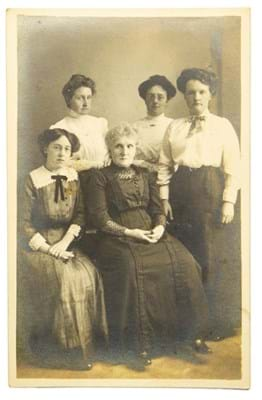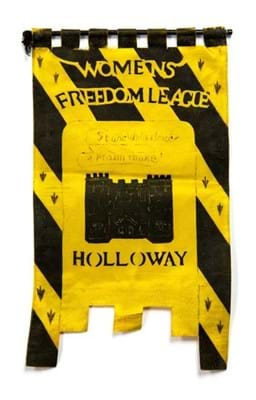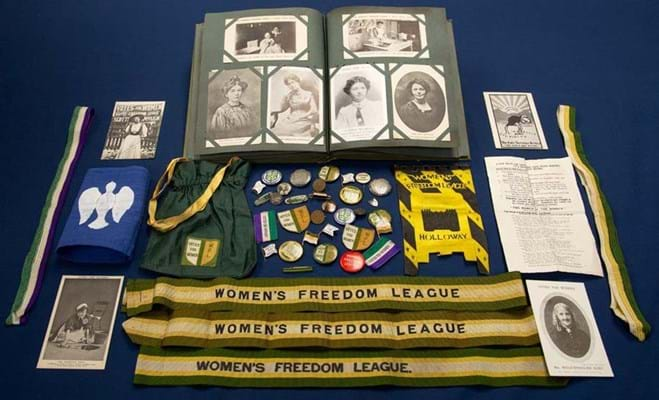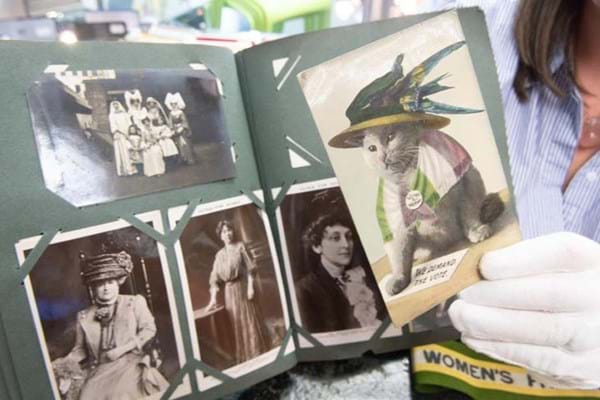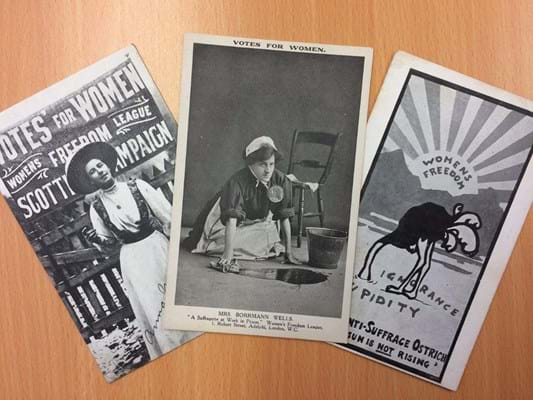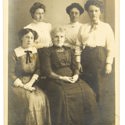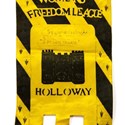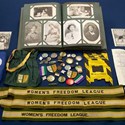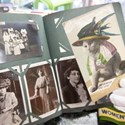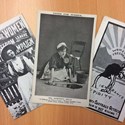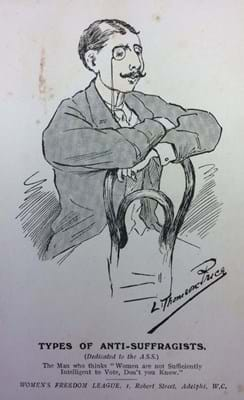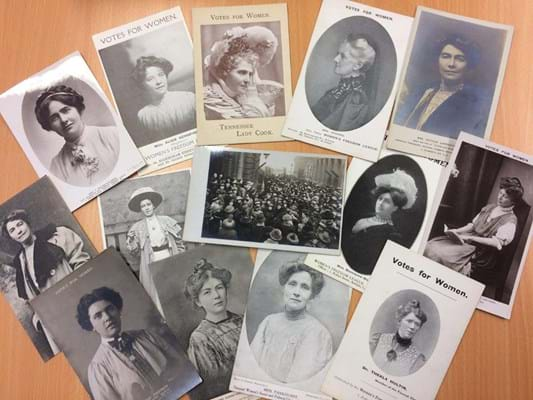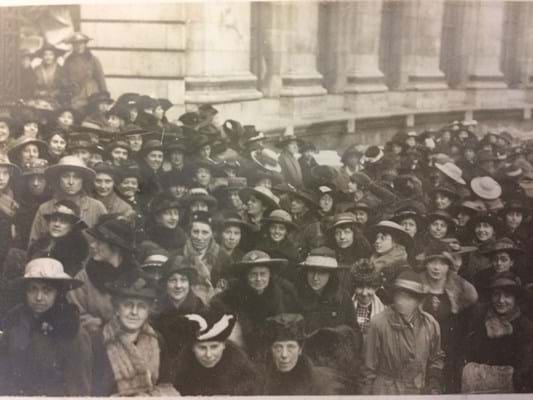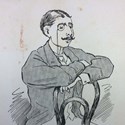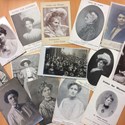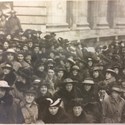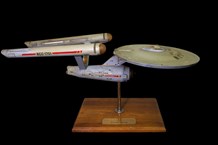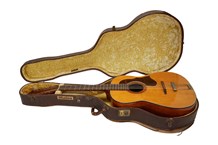Personal stories of the many activists who fought for that right have reinforced the value of such lots and an archive on offer at Derbyshire saleroom Hansons reveals the experience of three sisters – one of whom went to prison for the cause.
Their story came to light after a shoebox of political memorabilia was discovered after being left in a cubby hole underneath a staircase for decades.
The rich archive, which belonged to Edith, Florence, and Grace Hodgson will now go under the hammer on July 2 estimated at £1000-1500.
The sisters kept everything relating to their political fight including numerous badges, white enamel Votes for Women pins, the famous suffragette sashes, a leaflet providing ‘hints for women who have never marched in a procession before’ and even a Women’s Freedom League pennant featuring Holloway Prison and the words, stone walls do not a prison make.
Suffragette postcards
There is also a rich collection of 101 period postcards of leading lights in the movement including Emmeline Pankhurst, Lady Constance Lytton, Mrs Pethick Lawrence, Mrs Borrmann Wells, seen at work in prison, and Anna Munro, signed in ink.
Hansons valuer Isabel Murtough, who uncovered the find at a free valuation day, said: “Right now, there is huge interest in what the suffragettes achieved and fought for and suffragette-related finds are soaring at auction. The fact that one of the sisters, Grace, went to prison for her beliefs underlines how big a role they played in the movement.”
Serious work
The sisters took their roles seriously. Within a postcard album, which is part of the archive, are five handwritten postmarked cards urging them to support the cause in different ways. One to Miss Edith Hodgson, 39 Estelle Road, Hampstead NW, August 24, 1909, says: “Dear Miss Hodgson, we are indeed very grateful for your offer to help with the picketing as we are very hard pushed - looking forward to seeing you”
The items were inherited by the anonymous owner’s late husband. She said: “The three suffragettes were his great-aunts and he used to catch the train to visit them with his family. They were born in Islington and lived in a three-storey house in London. Each had a floor to themselves. They never married or had children but there was one other sister, May, who did marry and moved away.
“When the last sister died my late father-in-law, May’s son, cleared the property and many items were sold. But he was a hoarder and kept many things. When he passed away 12 years ago at the age of 94 we found the box of suffragette items in a cubby hole under the stairs. It was one of the last things we found as we were clearing the house.”
Family research
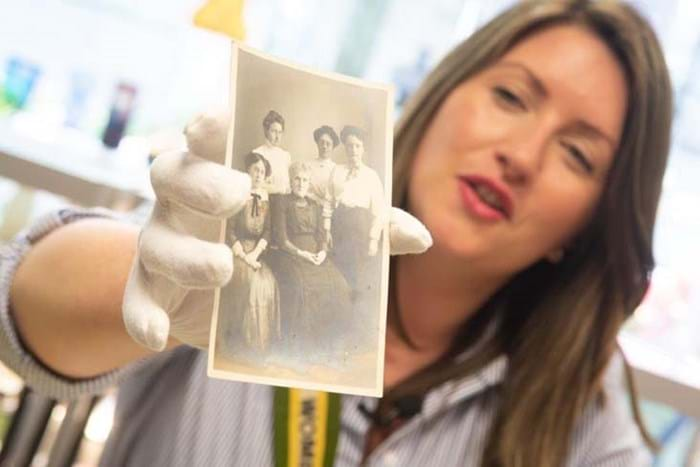
Hansons auction house specialist Isabel Murtough with a photo from the Hodgson sisters suffragette archive to be sold at Hansons on July 2 estimated at £1000-1500.
The vendor added that one of my daughters has “done hours of research to find out more about the sisters”.
It’s known that the Hodgson sisters, Edith, born in 1880, Florence, born in 1881 and Grace, born in 1888, lived at 39 Laurier Road, Dartmouth Park, London. In the 1901 census Edith was a milliner, Florence was noted as working for The Post Office and Grace was 13.
By 1911 all three are absent from the census, probably in protest. Many suffragettes deliberately avoided census night. It’s documented that in London suffragettes spent midnight walking round Trafalgar Square with a concert put on for entertainment and a vegetarian restaurant in Covent Garden staying open to provide refreshments.
Grace, the youngest sister, appears on the role of honour for suffragette prisoners, 1905-14, but it is not known why she was sent to jail.


